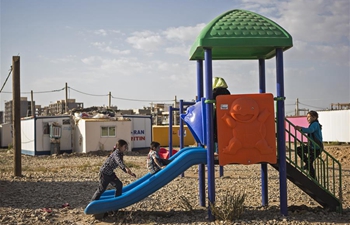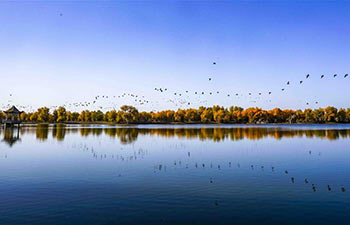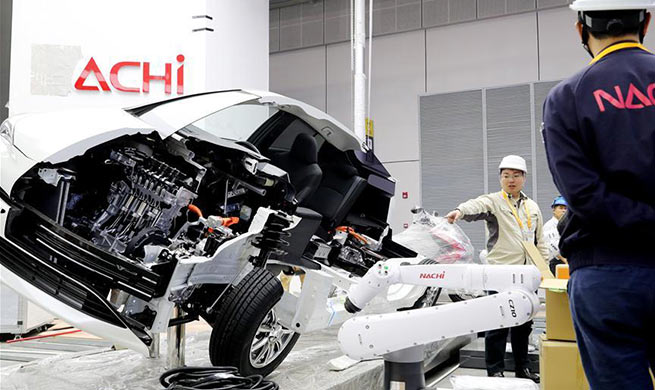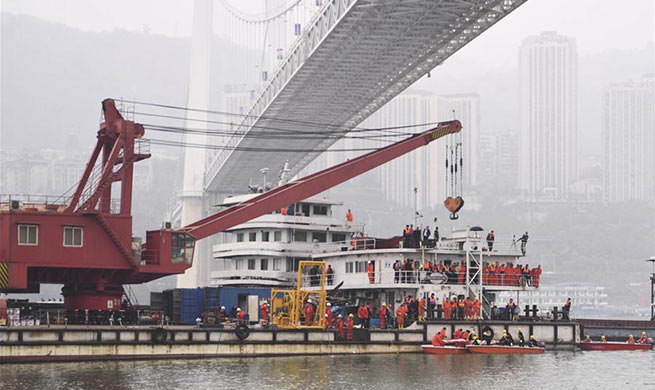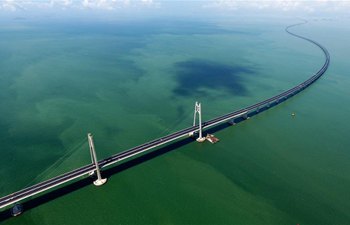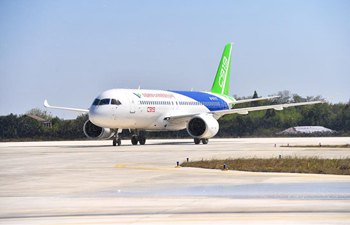BERLIN, Oct. 30 (Xinhua) -- German railways transported a record of over 400 million tons of goods in 2017, the Federal Statistical Office (Destatis) announced on Tuesday.
"This record is a success for the system railway," commented Thomas Puls, senior economist for traffic and infrastructure from the German Economic Institute (IW) on Tuesday.
According to the IW expert, freight transport had benefited from competition in particular. Ever since Deutsche Bahn, Germany's national train operator, began sharing its rail network with other providers, freight transport by rail has been growing again.
According to Destasis, German railway companies delivered 129.4 billion ton-kilometers of transport services in 2017, an increase of 0.8 percent and 1.1 billion ton-kilometers more than in 2016. On average, one ton of freight was transported 323 km by rail in Germany in 2017, Destatis figures show.
Rail logistics, however, are facing numerous challenges. "Where it matters, there are no additional capacities left," Puls told Xinhua on Tuesday. According to the IW traffic expert, there are still sufficient capacities in northern Germany, but on important railway routes such as the Rotterdam-Genoa connection, the situation would be quite different.
The railway connection between the two harbor cities Rotterdam in the Netherlands and Genoa in Italy is one of the most important transportation routes in Europe. In 2007, the Netherlands completed the country's largest single infrastructure project, the so-called Betuweroute, in order to expand the Rotterdam-Genoa-connection. In Switzerland, the world's longest and deepest rail tunnel, the Gotthard Base Tunnel, was put into service in 2016.
"Germany is not at risk to become a bottleneck, it already is," emphasized IW expert Puls. "To prevent this, capacities must be massively expanded."
According to Puls, this would not necessarily entail the construction of additional rails. Modernizing the infrastructure, such as signal technology, would be just as conceivable. This would allow trains to run at faster intervals or longer trains to transport more goods at once.

